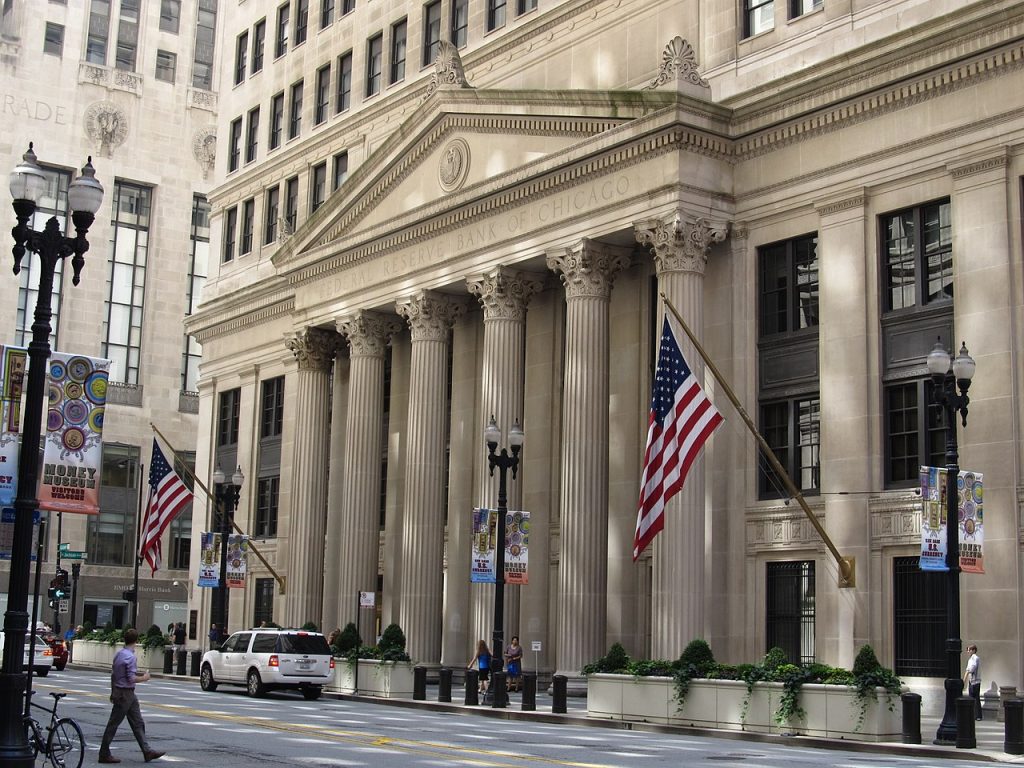With the bankruptcy of two American banks and the saving of Credit Suisse, central banks have hurried to keep money moving through the world’s financial institutions.
The Bank of England was one of 6 central banks that declared they would increase the flow of US dollars starting on Monday.
Similar actions were last implemented at the height of the Covid epidemic and the 2008 financial crisis.

It follows the state-backed bailout agreement in which UBS acquired Credit Suisse.
Since Silicon Valley Bank and Signature Bank fell in the US this week, stock markets have plummeted precipitously, raising concerns about bank runs.
After this weekend’s bailout of Switzerland’s second-largest lender, they were still under pressure on Monday.
Although central banks have emphasized that the global banking system is secure, there are worries that other lenders may run into difficulties after certain lenders were left holding significant losses as a result of recent interest rate increases.
The European Central Bank, Bank of Canada, Bank of England, US Federal Reserve, Swiss National Bank, and Bank of Japan said in a statement that they have started the concerted operation to maintain credit flow.
The measure, according to the central banks, “acted as an important backup to reduce strains in global funding markets” and to have a less significant effect on the availability of credit to individuals and enterprises.
British banks will have the option of borrowing directly from the Bank of England, which will borrow money from the US Federal Reserve, rather than the open market.
The same will apply to banks in the US, Canada, Japan, Switzerland, and the Eurozone.
This financing will be available to banks every day.
According to the Bank of England, the US dollar cash flow arrangement will last from Monday through at least the end of April.
With the fall of Silicon Valley Bank, global banking stocks fell, despite President Joseph Biden’s assurances that the US will take “whatever measures are necessary” to safeguard the financial system.
Two further medium-sized American lenders have also experienced problems, with Signature Bank folding and First Republic needing a $30 billion (£24.8 billion) financial infusion to strengthen its finances.
The FDIC (U.S. Federal Deposit Insurance Corporation) announced on Sunday that Flagstar Bank, a division of New York Community Bancorp, has agreed to purchase the assets of Signature.
The agreement covers practically all of the deposits, some of the loans, and all 40 of the former branches of Signature Bank.
The Faisal Islam Analysis
The announcement of “coordinated action” by six of the largest central banks in the world demonstrates how severe the overall anxiety regarding the brittleness of the global banking system is.
Since the financial difficulties at the start of the pandemic exactly three years ago, the facility hasn’t been utilised in the UK. This is not a spectacular action like the one the Bank of England had to take last autumn after the mini-budget. Yet it is a glaring indication that, despite the previous week being driven by specific problems in recognizable banks, the demise of a former industry titan like Credit Suisse may be sufficient to spark a wider concern.
The concern is more that a group of related factors are having an influence on certain other institutions rather than the direct effects of issues at Credit Suisse or Silicon Valley Bank. For instance, because to technology and the effect of social media comments, non-insured deposits are streaming out of some institutions and into larger ones at an astounding rate without anyone visiting a branch. Several regulators have likewise responded in a hazy manner.
The bigger picture is that, as I’ve previously stated, rapidly rising interest rates were always going to trigger some ticking timebombs under some institutions and in some shadowy parts of the financial system where players had begun to become a little bit too dependent on extremely low interest rates. This is now taking place.
The more comforting news is that, for example here, British banks are properly capitalised and have sufficient funding, or as the Bank of England phrased it on Sunday “secure and sound”. Yet, the fact that it has teamed up with its international counterparts is a sign of strength and an effort to stop threats from escalating.
Rising interest rates on the money that banks lend to one another are of special concern since they might quickly affect the economy and have a very substantial effect.












